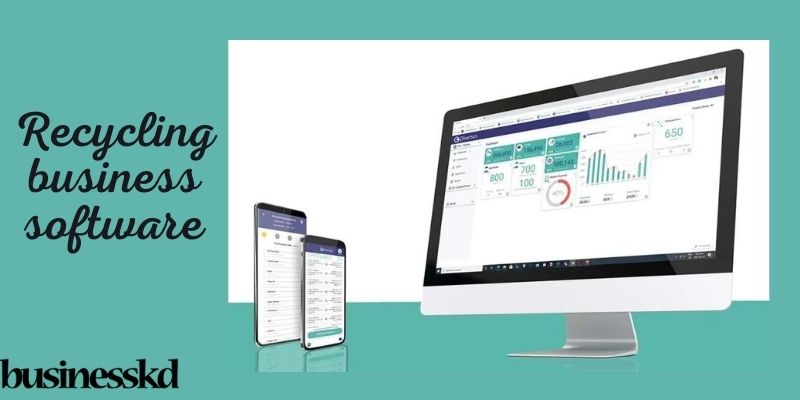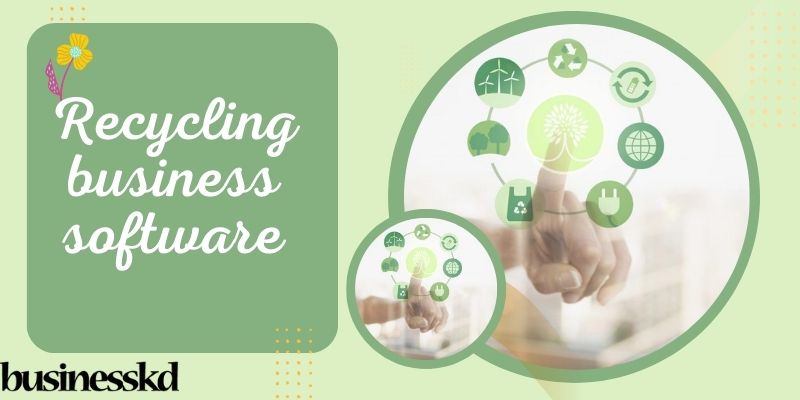In order to increase productivity and profitability, scrap metal recycling businesses must make a significant investment in software.
The intangible nature of software, in contrast to yard equipment or a fleet of trucks, can make picking the best Recycling business software solution difficult.
The following ten suggestions of businesskd.com will assist recycling businesses in selecting the most appropriate recycling business software.
10 Tips for Choosing a Recycling Business Software

1. Assess your needs
Recycling businesses should describe to prospective software vendors the requirements that a new Recycling business software must meet. Important factors to take into account include: the number of employees who will use the program, the number of yards it will serve, any special local or state requirements you must follow, future plans for company growth, and the proportion of employees that work remotely.
2. Remember your software is an investment
Good software will raise your company’s capacity to increase profitability and return on investment (ROI), much like cutting-edge yard equipment. Because of this, it’s crucial to avoid selecting a piece of software simply on the basis of its cost, as doing so may result in a decision that is not ideal for your business. Making the greatest choice when selecting software should be based on a variety of other considerations in addition to pricing because upgrading to better software in the future is a costly move to make.
3. Evaluate the database
The product’s database should be taken into account while selecting a recycling software solution. A foundational database created and supported by a large technological company, such as Oracle or Microsoft, is essential. The database needs to be sturdy and supported for many years of frequent updates. A recycling business shouldn’t ever buy Recycling business software that uses an unidentified database.
4. Discuss Customer Service
How well software supports your business and staff will be among its most quantifiable, obvious advantages. Make sure to take into account aspects like whether you can call technical support at any time or if you need to schedule an appointment. Which channels are available for technical support? Please phone, email, or text if you need assistance. What time zones are the tech support alternatives available? Do they accommodate your time zone requirements, and is there technical help available after hours? What will the training entail and when will it be put into practice?
5. Learn about Hardware

Ensure that if you prefer, you can purchase hardware on the open market. If you have to buy hardware from your software firm, your alternatives are constrained. Although that might be an option provided by your software supplier, you shouldn’t be forced to get your gear from or through a software firm. Your Recycling business software provider should also support top-notch, dependable name-brand hardware. It takes a large financial commitment to implement new software with hardware, therefore trying to save money by getting subpar technology is foolish. When low-quality hardware breaks down on the job and needs to be replaced, it will ultimately cost more in the long run.
6. Implement before your Customize
Immediate over-customization is a common error made while buying scrap metal Recycling business software. This error can be prevented by first installing and utilizing the software, and only then by adding customized features. Customization is crucial for some businesses because they might have a special method or procedure. To find out what actual gaps there are, it is essential to run the product “as is” at first. The firm and its employees may find the new software to be adaptive after utilizing it.
If the user does not fully understand the software’s capabilities, trying to customize it initially will take more time and spend more money. Once a user is more familiar with the product, they can more clearly articulate their demands. If, after using the product, it is decided that customisation is required, it can be more precisely designed and developed more quickly and for less money.
7. Don’t Pay Recurring Customization Fees
A monthly service fee is required to host, update, and support a software product after it has been installed. It could be necessary to periodically update customized features as new versions of the software are released. However, a recycler shouldn’t be required to pay additional fees each time the software is updated to provide a customized feature. There shouldn’t be any more expenses when a customisation is completed other the standard monthly maintenance fee.
8. Know Where your Cloud Data Center is located
Make sure you are aware of the location and specifics of the data center hosting the program if you are buying a cloud-based software package. Your program must be hosted in a reliable data center, and the setup must be scalable, which means that capacity may be extended without restrictions at any time. Having your software vendor handle their own software hosting on the cloud is not a long-term, ideal situation. It is far preferable to have your program hosted by a reputable technology firm that can protect your data with several data centers, solid technical skills, and resources.
9. Confirm your Operating Systems

Verify that the software and any devices you may purchase are compatible with the most recent version of the operating system. A product that will soon become obsolete and no longer be supported is not something you want to invest a lot of money in. Everything you purchase should be sustained for many years to come.
10. Choose industry-specific software
It is advantageous for scrap metal recyclers to employ software designed expressly for their sector. The software’s creators should have a thorough understanding of the workings of the scrap metal recycling sector. Laws that are specific to the scrap metal recycling industry must be followed at the federal, state, and local levels. Because of this, Recycling business software created especially for them will be preferable to a pre-made program that has been modified for the scrap metal recycling industry.

